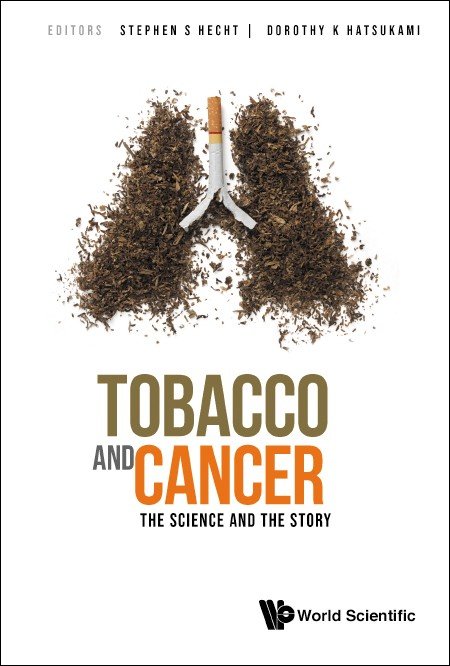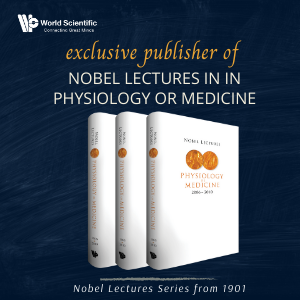This book tells the fascinating story of the relationship of tobacco products to cancer, from the first discoveries to the present day cancer pandemic and regulatory activities. Although there are already excellent books and monographs on this topic, both in the popular press and as government summaries, none relate the scientific story at the level of non-specialist graduate and medical students, researchers, or educated popular science readers. In this book, with a primary focus on the United States, the editors — Stephen S Hecht and Dorothy K Hatsukami — bring together 24 renowned experts on the subject of tobacco and cancer to summarize specific aspects of this critical topic in relatively non-technical terms while also incorporating some personal insights related to the story of the discovery process. This highly authoritative book is also expected to be an excellent teaching tool and basis for a course for graduate and medical students on this important topic.
Sample Chapter(s)
Front Matter
Contents:
- Preface
- History of the Evolution of Tobacco Products (K Michael Cummings, Anthony Brown and Baron Philipson)
- Smoking and Cancer: The Early Years (Jonathan M Samet)
- Animal Studies of Tobacco and Cancer (Karam El-Bayoumy)
- Carcinogens and Toxicants in Combusted Tobacco Products and Related Cancer Risks (Irina Stepanov)
- Carcinogens and Toxicants in Smokeless Tobacco Products (S Jane Henley, Taylor Ellington, Stephen Stanfill, Kathi Mills and Michael J Thun)
- Alternative Nicotine Delivery Systems (Maciej L Goniewicz)
- Mechanisms and Biomarkers of Tobacco Carcinogenesis (Stephen S Hecht)
- Nicotine Metabolism and Its Role in Cancer (Sharon E Murphy)
- Ethnic Differences in the Risk of Lung Cancer Related to Cigarette Smoking (Loïc Le Marchand)
- Chemoprevention of Tobacco-Associated Lung Cancer (Gary D Stoner)
- Epidemiology of Smoking and Cancer, Recent Trends, and Benefits of Quitting (Terry Frank Pechacek)
- Nicotine Addiction and Its Treatment (Judith J Prochaska and Neal L Benowitz)
- Tobacco Control Policies (Michael P Eriksen and Carrie F Whitney)
- The Role of Tobacco Regulation in Addressing Cancer From Tobacco Products (David L Ashley)
- Tobacco Endgame (Kenneth E Warner)
- Index
Readership: Non-specialist graduate and medical students, researchers, or educated popular science reader.
Stephen S Hecht, PhD, is Wallin Professor of Cancer Prevention at the University of Minnesota and an American Cancer Society Research Professor. He is an internationally recognized expert on carcinogens in tobacco products and their mechanisms. He is the co-discoverer of tobacco-specific nitrosamines, causative agents for tobacco-induced cancer. His current research focuses on the relationship of human carcinogen and toxicant metabolites and DNA adducts to cancer risk.
He has a BS in chemistry (Duke University) and a PhD in organic chemistry (MIT). Prior to moving to the University of Minnesota in 1996, he conducted research at the American Health Foundation cancer prevention research institute in Valhalla, NY, where he was Director of Research from 1987–1996.
He received the AACR Award for Excellence in Cancer Prevention Research in 2006, and the Founders Award from the Division of Chemical Toxicology, American Chemical Society in 2009. He was elected an American Chemical Society Fellow in 2009, a Fellow of the American Association for the Advancement of Science in 2014, and was Editor-in-Chief of Chemical Research in Toxicology 2013–17. He has received a Merit Award and an Outstanding Investigator Grant from the National Cancer Institute.
He has published over 880 papers in the scientific literature.
Dorothy K Hatsukami, PhD, is Forster Family Chair for Cancer Prevention and Professor of Psychiatry and Behavioral Sciences at the University of Minnesota. She is internationally recognized for her expertise in tobacco addiction and its treatment and tobacco regulatory science, focused on ways to reduce tobacco harm. Her scientific work has involved characterizing tobacco and nicotine dependence, evaluating different pharmacological treatments including the nicotine vaccine and combination medications, and evaluating the toxicity, abuse liability and appeal of combusted tobacco products and smokeless tobacco. Her recent primary focus has been to generate the science to support the regulation to reduce nicotine in cigarettes to make them minimally addictive.
She has a BA in psychology (University of California, Berkeley) and a PhD in clinical psychology (University of Minnesota). She joined the faculty at the University of Minnesota upon receiving her PhD.
She has received awards from the Society for Research on Nicotine and Tobacco, American Psychological Association (Division 28) and the College on Problems on Drug Dependence. She has severed on a number of advisory boards for the US governmental agencies, including the Food and Drug Administration, and currently serves on the World Health Organization, Study Group on Tobacco Product Regulation.
She has over 500 publications and her Google Scholar H-index is 92 (March 2022).





